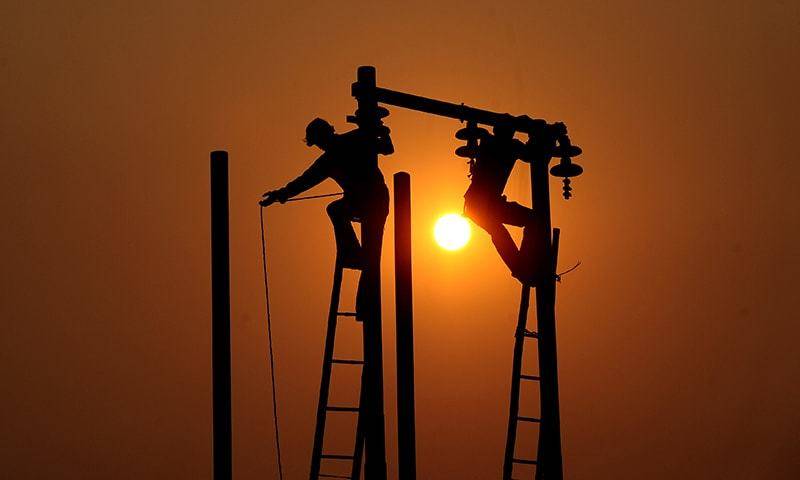ISLAMABAD: The Dongfang Electric Corporation, the blacklisted Chinese company which carried out the 425MW Nandipur Power Project, has been called out to help power authorities run the plants. Pepco signed Rs23 billion ($329 million) contract with Dongfang in January 2008 and after a series of setbacks, the project was completed in March 2015 at a much higher cost than estimated.
The local authorities failed to keep the plant running and it has been non-operational for more than a month, amid allegation of gross corruption and irregularities on part of the water and power ministry and other relevant departments. Now, some relevant sources have claimed that the ministry has decided to seek Dongfang help. The decision was taken on Saturday after the engineers of the plant failed to operate it, they said. The company was blacklisted by the Railways ministry for corruption and not providing engines and equipment as per contract.
“We have communicated the company, they have called expert engineers who will reach next week and the plant will be running in full capacity in 2-4 weeks,” officials related with the Nandipur project claimed. They also said that electricity from the plant would be generated as per Nepra rate. Authorities have granted a tariff of Rs11.30 per unit. They claimed that when the plant was operational for three months it generated electricity at the rate of Rs11.30 per unit.
The Nandipur Power Plant's first phase of 95MW was inaugurated by Prime Minister Nawaz Sharif on May last year. The plant generated electricity at a record Rs42 per unit and had to be shut down just after five days of its operation, since then it has been non-operational. The matter was flashed in media after the water and power ministry last week, sought explanation from the project management through a letter asking why the project was not operating, as per plan, resulting in huge losses to the national exchequer.
Taking notice of the media reports, PM Nawaz ordered audit of the project amid allegations of corruption. On the PM’s directions, the ministry wrote a letter to the Auditor General asking to conduct audit to find reasons behind the increasing cost of the project. According to sources, after the PM’s notice, the Genco management tried to run the plant but failed due to insufficient staff and lack of in-house capacity.
A team of three engineers from Muzaffargarh was sent to the plant, who after interviewing the staff, found that due to lesser human resource and lack of in-house expertise the present engineers could not operate the plant.
According to the sources, the management wanted to grant operational contract to some foreign firm, at a rate 50 percent higher than the Nepra's approved tariff.
Sources said the plant has a small diesel treatment unit and in present state it can only generate up to 250MW of electricity. It has also been alleged that the actual amount spent on the project was around Rs80 billon and the amount escalated due to alleged corruption. The plant officials, on the other hand, narrate a different story, claiming that the 425MW power plant was not being operational because of delays from the ministry.
It is a fact that the plant is not producing electricity for last one month owing to lack of capabilities of staff. “We have only 91 engineers in addition to the other staff whereas 150 staffers are required to run it,” a source said.
According to the documents, the Executive Committee of National Economic Council approved the project on 4-7-2013 at a revised cost of Rs57,380 million and Rs1,036 million to cover demurrage, detention charges and federal excise duty.
The management of the Nandipur project claims that the project was delayed due to alleged lukewarm response from Islamabad. “We wrote to the ministry around one and a half years back that we lack expertise to operate the plant and its operation should be outsourced to some foreign company,” he said. “We were given a go-ahead signal in October 2014, and we floated tenders strictly observing the PPRA rules, but when we finalised everything on 26 July the board disapproved the deal, and this decision was communicated to us on 26 August,” the source said. He said, “After rejection we asked the ministry to allow for having an operational agreement with the exiting Dongfang company.”






